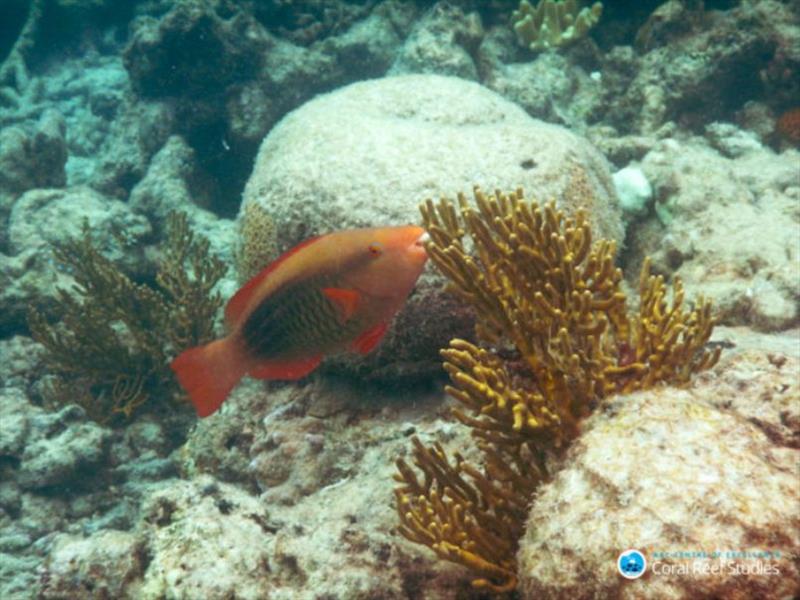
Piscatory paradox: Frigid polar oceans are species-formation hot spots for marine fishes
by coralcoe.org.au 30 Jul 2018 00:51 UTC

A Bridled parrotfish (Scarus frenatus), Lizard Island, Australia © ARC CoE for Coral Reef Studies / Robert Streit
Tropical oceans teem with the dazzle and flash of colourful reef fishes, and contain far more species than the cold ocean waters found at high latitudes. This "latitudinal diversity gradient" is one of the most famous patterns in biology, and scientists have puzzled over its causes for more than 200 years.
A common explanation for the gradient is that warm reef environments serve as evolutionary hot spots for species formation. But a new study led by researchers at University of Michigan and the Australian Research Council Centre of Excellence for Coral Reef Studies (Coral CoE), has analyzed the evolutionary relationships between more than 30,000 fish species and found that the fastest rates of species formation have occurred at the highest latitudes and in the coldest ocean waters.
Over the past several million years, cool-water and polar ocean fishes formed new species twice as fast as the average species of tropical fish, according to the new study, published today in the prestigious journal Nature.
"These findings are both surprising and paradoxical," said University of Michigan evolutionary biologist Daniel Rabosky, lead author of the study.
"We find that speciation is actually fastest in the geographic regions with the lowest species richness," he said.
"Our research certainly paints coral reef diversity in a new light," said co-author Dr Peter Cowman of Coral CoE at James Cook University, formerly of Yale University (USA).
The authors admit they cannot fully explain their results, which are incompatible with the idea that the tropics serve as an evolutionary cradle for marine fish diversity.
Common sense suggests that a high rate of new species formation will eventually lead to impressive levels of biodiversity. But that depends on how many of the newly formed species survive and how many go extinct.
"Extinction is the missing piece of this puzzle, but it's the most difficult thing to understand," Rabosky explained. "We're now using both fossils and new statistical tools to try to get a handle on what extinction might have been doing in both the polar regions and the tropics."
The researchers tested the widely held assumption that species-formation rates are fastest in the tropics by examining the relationship between latitude, species richness and the rate of new species formation among marine fishes. They assembled a time-calibrated 'evolutionary tree*' of all 31,526 ray-finned fish species, then focused their analysis on marine species worldwide.
Surprisingly, some of the fastest rates of new species formation occurred in Antarctic icefish and their relatives. Other temperate and polar groups with exceptionally high speciation rates include snailfish, eelpouts and rockfish.
Three of the largest coral reef-associated fish groups – wrasses, damselfish and gobies – showed low to moderate rates of species formation. "The fact that coral reefs support many more fish species than polar regions despite these lower rates may have a lot to do with their long history of connectivity and ability to act as refugia," Cowman said.
"Who would have thought that you'd have these really explosive rates of species formation happening in the coldest Antarctic waters, where water is literally at the freezing point and fish, like the icefish, have to have all kinds of really crazy adaptations to live there, like special antifreeze proteins in their blood to keep it from freezing," Rabosky said.
The paper "An inverse latitudinal gradient in speciation rate for marine fishes" is now available here